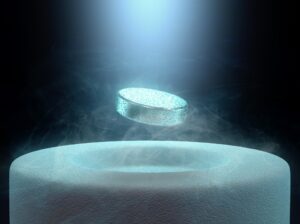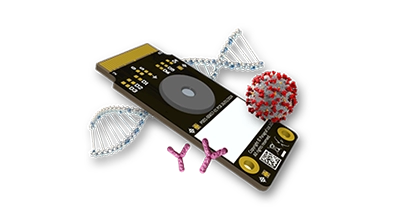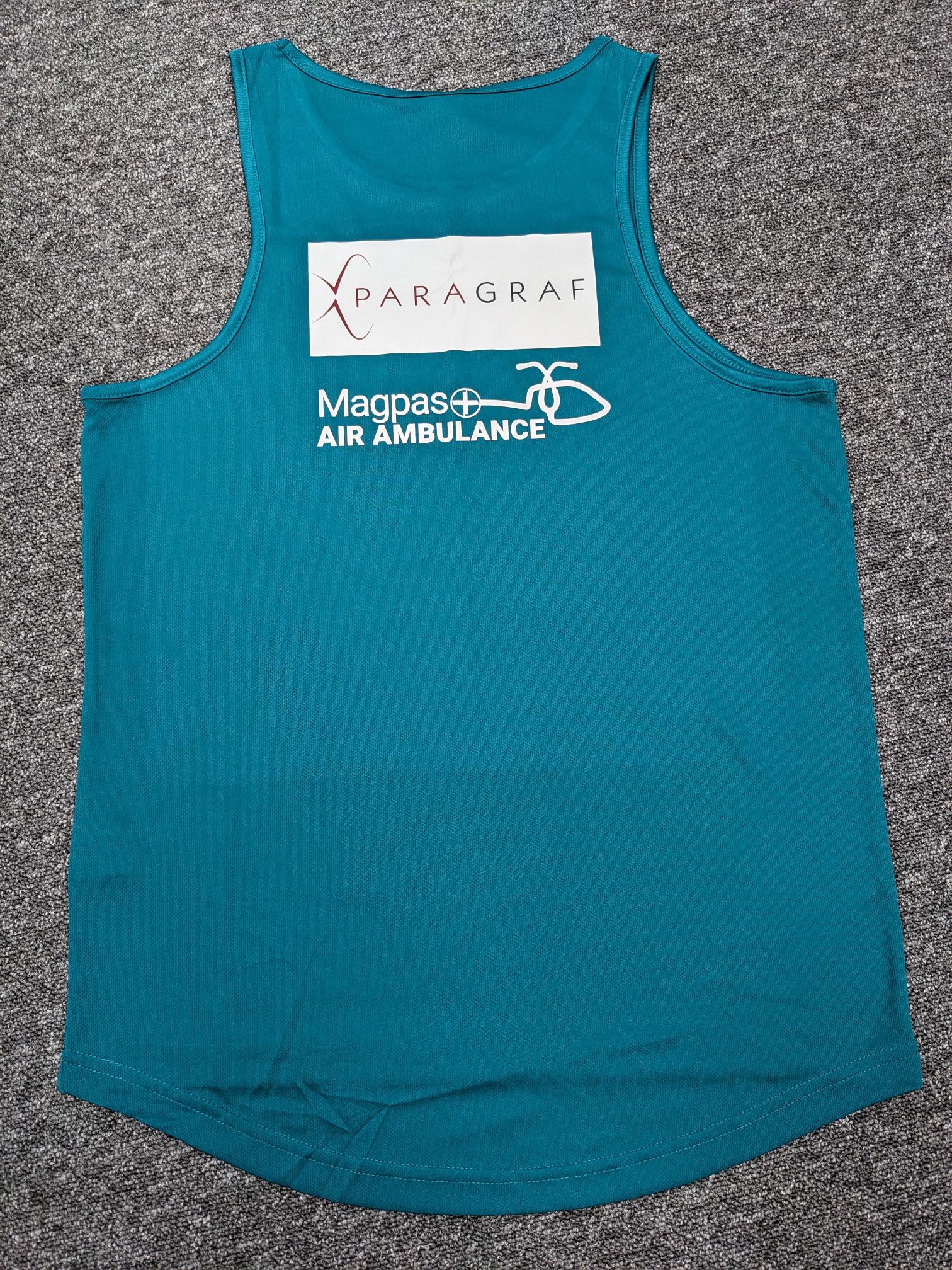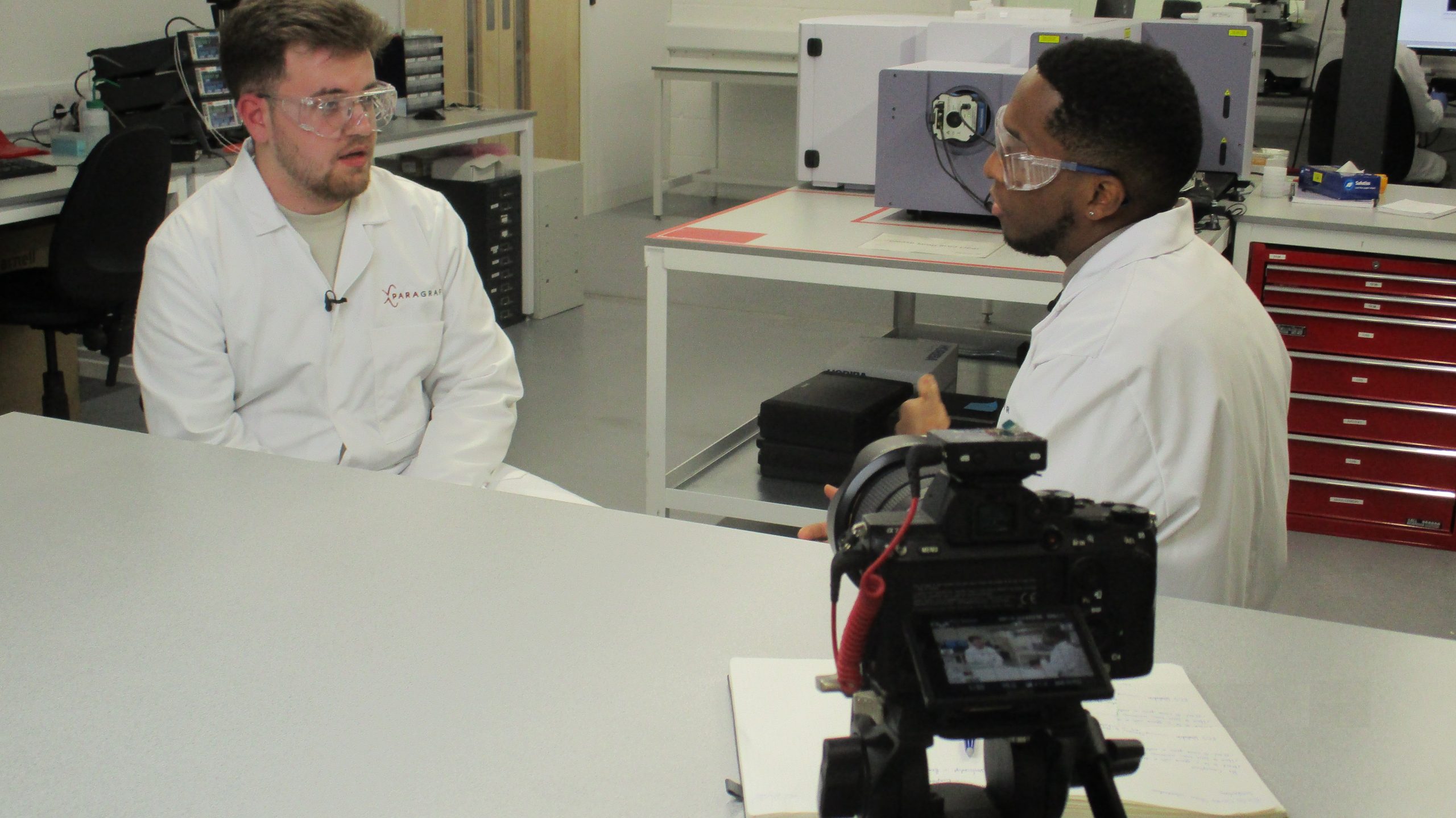Paragraf, the leader in graphene-based transformative electronic sensors and devices, is helping to realise an industry first by implementing a supply chain for graphene Hall-Effect sensors used in high-temperature Power Electronics, Electric Machines and Drives (PEMD) within the aerospace sector.
Named High-T Hall, the project stems from the UK Research and Innovation’s (UKRI) ‘Driving the Electric Revolution’ challenge and brings together Paragraf, Rolls-Royce, TT Electronics (Aero Stanrew) and the Compound Semiconductor Applications Catapult (CSA Catapult). It is set to demonstrate how graphene-based Hall Effect sensors can operate reliably at high temperatures, paving the way for more efficient electric engines in aerospace and beyond.
Hall Effect sensors play a major role in monitoring current levels and magnetic fields in PEMD applications, which is critical to monitoring drive power consumption and machine speed and position. The deployment of conventional silicon Hall sensors is, however, restricted to environments with temperatures below 150 °C and frequencies below 100kHz, which can constrain system level design. Project High-T Hall aims to demonstrate that graphene-based Hall Effect sensors will operate reliably up to 180 °C, and potentially even at temperatures of up to 230 °C allowing them to be mounted within the machine or power module enclosure thus enabling much greater flexibility in the design of new PEMD equipment aligned to Silicon Carbide power devices and higher performance more compact electrical machines. The ability to monitor current levels more accurately and reliably will enable better overall system control, which will in turn reduce size and weight and help design more efficient electric engine systems.
Ivor Guiney, co-founder of Paragraf, commented: “We are extremely proud to be part of this pioneering project that will hopefully lead to better efficiency in all-electric engines and help accelerate the adoption of e-planes and, more generally, electric vehicles. Our graphene Hall Effect sensors have already proven to possess unique cryogenic properties, so their resistance to high temperatures will help demonstrate how uniquely versatile graphene devices are from a thermal standpoint.”
As the lead partner in High-T Hall, Paragraf will design and manufacture custom Hall Effect sensors for integration into the systems of Rolls-Royce and TT Electronics. The CSA Catapult will provide their packaging expertise to develop innovative packaging solutions and advanced assembly process for realising the prototypes. The role of Rolls-Royce and TT Electronics will be to test the Paragraf’s graphene Hall Effect sensors in state-of-the-art, aerospace PEMD applications, with the former pioneering the use of this technology in their upcoming gas turbine product portfolio. TT Electronics will use it to develop a range of modular current sensors for use in rugged aerospace electrical systems to reduce Hall Effect sensor temperature-related errors.
Head of Electronics Stephen Dennison at Rolls-Royce stated: “Rolls-Royce is committed to playing a leading role in reaching net zero carbon by 2050 and this includes championing sustainable power. This project with Paragraf and the other partners will help develop a resilient supply chain that enables companies to source made-to-measure, innovative electronic components to enhance the efficiency and performance of power, electronics, machines and drives.”
Owen Rolfe, Business Development Director at TT Electronics stated: “Now more than ever it’s important we make a proactive effort to accelerate innovation within the Aerospace supply chain. In this case, higher temperature operation of these sensing solutions has the capability to deliver significant efficiency benefits to power electronics systems and that’s something we’re extremely proud and well placed to support.”
Martin McHugh, CTO and Acting CEO at the CSA Catapult stated: “The aim of project High-T Hall is to demonstrate an integrated UK supply chain solution for advanced Hall sensing within PEMD. This will address the issues PEMDs experience when switching frequencies across a broad range of temperature conditions. We are very pleased to be involved in the sensor test platform and reliability testing on this project.”
The use of a graphene-based Hall Effect sensors in high-temperature aerospace environments could not only be replicated in other industries such as automotive. It may also open new opportunities for other graphene-based electronics, beyond sensors, which can help improve efficiency and performance even further in applications such as the engines of EVs.
Project High-T Hall started in July 2020 and is now due to run for one year. It is funded by UK Research and Innovation.
About Rolls-Royce Holdings plc
Rolls-Royce pioneers cutting-edge technologies that deliver clean, safe and competitive solutions to meet our planet’s vital power needs. Rolls-Royce has customers in more than 150 countries, comprising more than 400 airlines and leasing customers, 160 armed forces and more than 5,000 power and nuclear customers. Annual underlying revenue was £15.45 billion in 2019, around half of which came from the provision of aftermarket services. In 2019, Rolls-Royce invested £1.46 billion on research and development. We also support a global network of 29 University Technology Centres, which position Rolls-Royce engineers at the forefront of scientific research. More information at https://www.rolls-royce.com/.
About TT Electronics plc
TT Electronics is a global provider of engineered electronics for performance-critical applications. The company operates in industries where there are structural growth drivers, working with market-leading customers primarily in aerospace and defense, medical and industrial sectors. Products designed and manufactured include sensors, power management devices and connectivity solutions. TT has design and manufacturing facilities including in the UK, US, Mexico, Sweden and Asia. For more information about TT Electronics visit www.ttelectronics.com.
About CSA Catapult
Compound Semiconductor Applications Catapult is a Not for Profit organisation headquartered in South Wales. It is focused on accelerating the adoption of compound semiconductors and on bringing applications to life in three technology areas: Power Electronics, RF & Microwave and Photonics. The next wave of emerging applications will have an enormous impact on our lives. Compound semiconductors will enable a host of new and exciting applications in the electrification of transport, clean energy, defence and security, digital communications. Increasing demand for clean energy will require new electricity networks, while advanced sensing will open-up new opportunities for health diagnostics and security. These developments will be underpinned by compound semiconductor (CS) technologies.
The Compound Semiconductor Applications Catapult exists to help the UK compound semiconductor industry grow and works across the UK within a range of industry sectors from automotive to medical, and from digital communications to aerospace. As well as the three technology areas, CSA Catapult is also working in Advanced Packaging for these high-power innovations. See https://www.csa.catapult.org.uk/.







